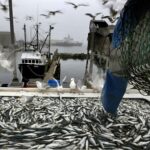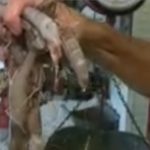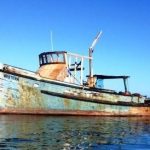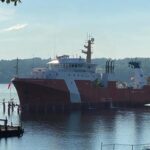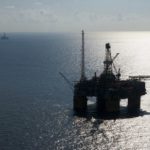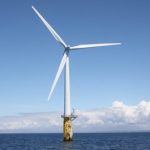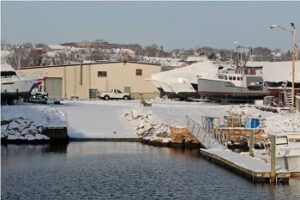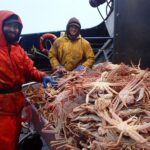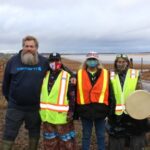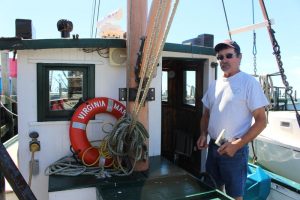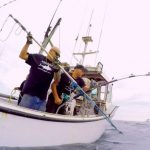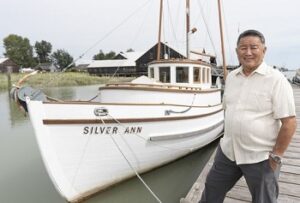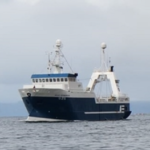Daily Archives: April 17, 2016
The Impacts of Trawling in the North Sea are Overrated
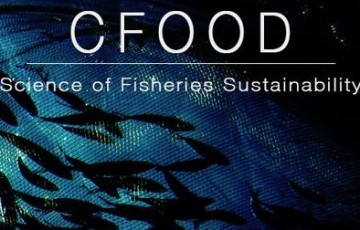 A new study by Ferdinand Oberle, Curt Storlazzi, and Till Hanebuth attempted to quantify the global impact of bottom trawling on continental shelf. It presents a high-resolution, one-year, spatial record of ground-penetrating fishing activities, namely otter trawling (referred to as bottom-trawling in the paper) on the NW-Iberian shelf, and calculates the resuspended sediment load caused by the operations of this fleet. The authors also challenge conclusions from papers like Kaiser et al 2006 that suggest trawling affected seabed hotspots are rare. To this end the authors found NW Iberian shelf areas to be experiencing trawling on average 5.9 times per annum compared to less than 1 in previous studies. Read the rest here 21:18
A new study by Ferdinand Oberle, Curt Storlazzi, and Till Hanebuth attempted to quantify the global impact of bottom trawling on continental shelf. It presents a high-resolution, one-year, spatial record of ground-penetrating fishing activities, namely otter trawling (referred to as bottom-trawling in the paper) on the NW-Iberian shelf, and calculates the resuspended sediment load caused by the operations of this fleet. The authors also challenge conclusions from papers like Kaiser et al 2006 that suggest trawling affected seabed hotspots are rare. To this end the authors found NW Iberian shelf areas to be experiencing trawling on average 5.9 times per annum compared to less than 1 in previous studies. Read the rest here 21:18
Maryland scientists to conduct Chesapeake Bay oyster harvest study
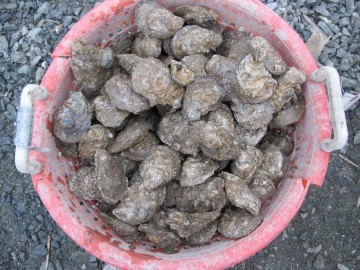 Scientists say they have only a vague idea of how many oysters cover the reefs in the Chesapeake Bay, and can’t say how many can be harvested safely each year without threatening the future of an already decimated population.In the waning hours of its 2016 session, the Maryland General Assembly this week authorized a study that advocates say will not only provide a more precise count of the bivalves, but assess how quickly they are reproducing, how fast they are growing and how they are faring against disease. The oyster study stoked controversy in an hours-long hearing earlier this month. Many watermen said it would lead inevitably to restrictions on their harvests, and the state Department of Natural Resources initially opposed it because the legislation left the DNR out of the research. But in a compromise, lawmakers gave the department responsibility for the study, to be conducted by researchers at the University of Maryland Center for Environmental Science. A final report is due in December 2018. Read the rest here 19:12
Scientists say they have only a vague idea of how many oysters cover the reefs in the Chesapeake Bay, and can’t say how many can be harvested safely each year without threatening the future of an already decimated population.In the waning hours of its 2016 session, the Maryland General Assembly this week authorized a study that advocates say will not only provide a more precise count of the bivalves, but assess how quickly they are reproducing, how fast they are growing and how they are faring against disease. The oyster study stoked controversy in an hours-long hearing earlier this month. Many watermen said it would lead inevitably to restrictions on their harvests, and the state Department of Natural Resources initially opposed it because the legislation left the DNR out of the research. But in a compromise, lawmakers gave the department responsibility for the study, to be conducted by researchers at the University of Maryland Center for Environmental Science. A final report is due in December 2018. Read the rest here 19:12
As ‘ghost fishing’ ravages ocean stocks, efforts build to retrieve killer lost nets and traps
 Abandoned or lost fishing gear — including traps, crab pots and nets — litters the ocean floor in coastal areas around the world. Many continue to attract, entrap and kill fish and other marine life in what is called “ghost fishing.” Groups, governments and companies around the world are engaged in efforts to retrieve and recycle as much of the abandoned gear as they can get their hands on. The goal is to protect the environment, prevent marine life from being killed, remove threats to navigation and, in some cases, generate energy. Read the rest here 17:09
Abandoned or lost fishing gear — including traps, crab pots and nets — litters the ocean floor in coastal areas around the world. Many continue to attract, entrap and kill fish and other marine life in what is called “ghost fishing.” Groups, governments and companies around the world are engaged in efforts to retrieve and recycle as much of the abandoned gear as they can get their hands on. The goal is to protect the environment, prevent marine life from being killed, remove threats to navigation and, in some cases, generate energy. Read the rest here 17:09
Cannery Row history: Western Flyer puzzle takes shape
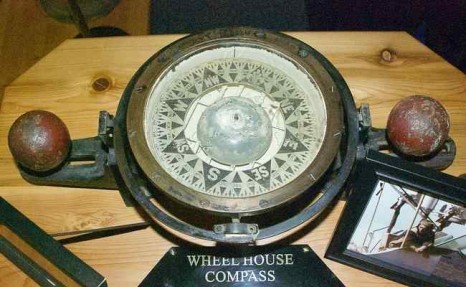 Revelations at the Cannery Row Symposium just keep getting better and better. Last year it was announced that the Western Flyer, the fishing boat leased by John Steinbeck and Ed Ricketts for their historic collecting trip to the Sea of Cortez, had been purchased and would be restored and returned to Monterey Bay as an educational classroom. At this year’s event, held Saturday at Hopkins Marine Station, the wheel from the fishing boat’s flying bridge and two compasses were displayed. It was also announced that the foundation has come into possession of Ricketts’ rolodex. The rolodex is two boxes of index cards that survived the fire that destroyed his business, Pacific Biological Laboratories, in 1936. It gives a broader picture of how the marine biologist was connected to scientists all over the world. But more on that later.,, Read the article here 14:46
Revelations at the Cannery Row Symposium just keep getting better and better. Last year it was announced that the Western Flyer, the fishing boat leased by John Steinbeck and Ed Ricketts for their historic collecting trip to the Sea of Cortez, had been purchased and would be restored and returned to Monterey Bay as an educational classroom. At this year’s event, held Saturday at Hopkins Marine Station, the wheel from the fishing boat’s flying bridge and two compasses were displayed. It was also announced that the foundation has come into possession of Ricketts’ rolodex. The rolodex is two boxes of index cards that survived the fire that destroyed his business, Pacific Biological Laboratories, in 1936. It gives a broader picture of how the marine biologist was connected to scientists all over the world. But more on that later.,, Read the article here 14:46
Letter: Follow the leaders in fisheries management – Gus Etchegary Portugal Cove-St. Philip’s
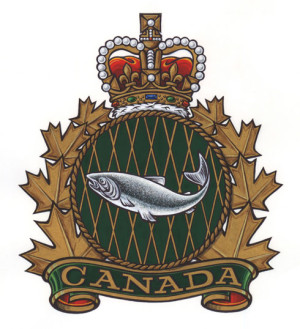 I have recently been in contact with former associates in Iceland, Norway and other advanced fishing nations on the status of their fishing industries, including fisheries management, processing technology, customer demands (for fresh, primary and secondary-processed fish products) and ongoing technical advances. I also questioned how these developments impact prices paid to fishermen and processing plant labour. As a result of impressive technical advances made in Iceland, Norway and Alaska in resource management and other key areas from processing higher quality fish and market development, their industries are now paying far higher prices to fishermen and higher wages to processors. Of even greater significance is the enormous contribution their fishing industry is making to their respective economies. Read the rest here 09:58
I have recently been in contact with former associates in Iceland, Norway and other advanced fishing nations on the status of their fishing industries, including fisheries management, processing technology, customer demands (for fresh, primary and secondary-processed fish products) and ongoing technical advances. I also questioned how these developments impact prices paid to fishermen and processing plant labour. As a result of impressive technical advances made in Iceland, Norway and Alaska in resource management and other key areas from processing higher quality fish and market development, their industries are now paying far higher prices to fishermen and higher wages to processors. Of even greater significance is the enormous contribution their fishing industry is making to their respective economies. Read the rest here 09:58
Collapse of kelp forest imperils North Coast ocean ecosystem
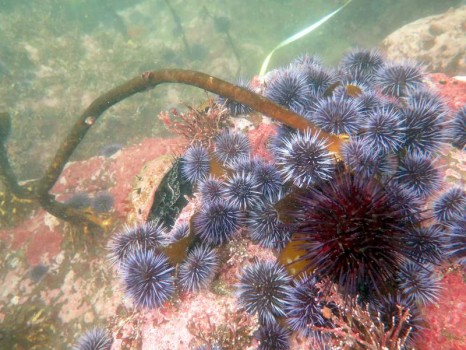 Large tracts of kelp forest that once blanketed the sea off the North Coast have vanished over the past two years, a startling transformation that scientists say stems from rapid ecological change and has potentially far-reaching impacts, including on several valuable fisheries. The unprecedented collapse has been observed along hundreds of miles of coastline from San Francisco to Oregon. The region’s once-lush stands of bull kelp, a large brown alga that provides food and habitat for a host of wildlife species, have been devoured by small, voracious purple urchins. In the most-affected areas, denuded kelp stalks are almost all that remains of plant life. Read the article here 09:02
Large tracts of kelp forest that once blanketed the sea off the North Coast have vanished over the past two years, a startling transformation that scientists say stems from rapid ecological change and has potentially far-reaching impacts, including on several valuable fisheries. The unprecedented collapse has been observed along hundreds of miles of coastline from San Francisco to Oregon. The region’s once-lush stands of bull kelp, a large brown alga that provides food and habitat for a host of wildlife species, have been devoured by small, voracious purple urchins. In the most-affected areas, denuded kelp stalks are almost all that remains of plant life. Read the article here 09:02

































